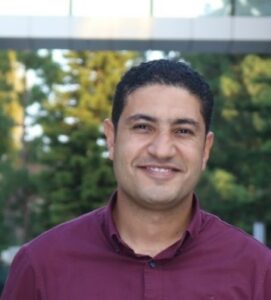UTIAS Seminar Series

- This event has passed.
A Variational Theory of Aero-hydrodynamics
April 28, 2023 @ 2:30 pm - 3:30 pm
A Variational Theory of Aero-hydrodynamics
The Euler equation does not possess a unique solution for the flow over a two-dimensional object. This problem has serious repercussions in aerodynamics; it implies that the inviscid aero-hydrodynamic lift force over a two-dimensional object cannot be determined from first principles; a closure condition must be provided. The Kutta condition has been ubiquitously considered for such a closure in the literature, even in cases where it is not applicable (e.g. unsteady). In this talk, I will present a special variational principle that we revived from the history of analytical mechanics: Hertz’ principle of least curvature. Using this principle, we developed a novel variational formulation of Euler’s dynamics of ideal fluids that is fundamentally different from the previously developed variational formulations based on Hamilton’s principle of least action. Applying this new variational formulation to the century-old problem of the ideal flow over an airfoil, we developed a general (dynamical) closure condition that is, unlike the Kutta condition, derived from first principles. In contrast to the classical theory, the proposed variational theory is not confined to sharp edged airfoils; i.e., it allows, for the first time, theoretical computation of lift over arbitrarily smooth shapes, thereby generalizing the century-old lift theory of Kutta and Zhukovsky. Moreover, the new variational condition reduces to the Kutta condition in the special case of a sharp-edged airfoil, which challenges the widely accepted wisdom about the viscous nature of the Kutta condition.
We also generalized this variational principle to Navier-Stokes’ via Gauss’ principle of least constraint, thereby discovering the fundamental quantity that Nature minimizes in every incompressible flow. We proved that the magnitude of the pressure gradient over the field is minimum at every instant! We call it the Principle of Minimum Pressure Gradient (PMPG). We proved that the Navier-Stokes’ equation is the necessary condition for minimizing the pressure gradient subject to the continuity constraint. Hence, the PMPG turns any fluid mechanics problem into a minimization one where fluid mechanicians need not to apply Navier-Stokes’ equations, but merely need to minimize the proposed action.
Biography
 |
Haithem Taha is currently an associate professor in MAE. He received a PhD degree from the Engineering Mechanics department at Virginia Tech simultaneously with an MSc degree in Mathematics. Taha’s research interests span geometric nonlinear control theory, unsteady aerodynamics, theoretical mechanics and variational principles with applications to unconventional flight mechanics such as bio-inspired flight. He is a Recipient of the NSF CAREER Award and an AIAA Associate Fellow. Taha is particularly interested in the history and philosophy of mechanics and has several lectures on the topic. |
Seminar Room
https://utoronto.zoom.us/j/84339849410
Zoom ID: 843 3984 9410 Passcode: 689661